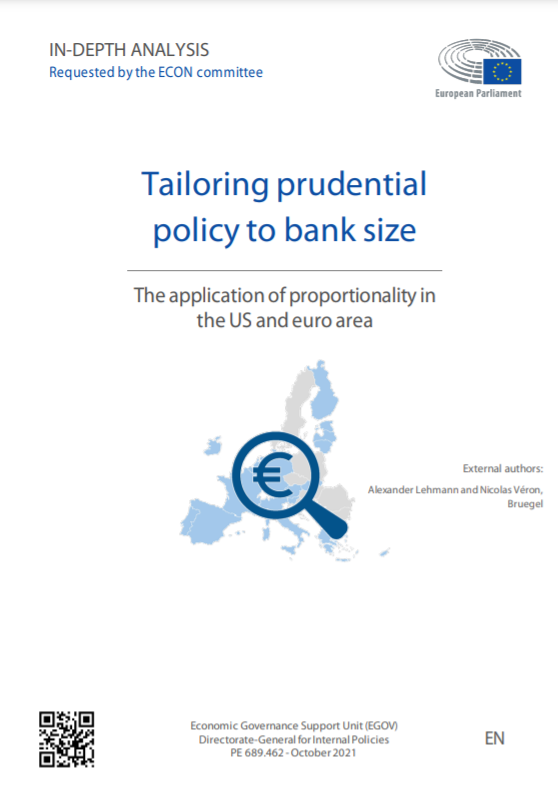Blog Post
Financial regulatory reforms in the UK and US to manage systemic risks and strengthen consumer protection
Compared to micro-prudence of financial institutions, ‘systemic stability’ and ‘consumer protection’ are harder to achieve because they are beyond the reach of the ‘invisible hand’ and of individual supervisory authorities. For this reason, it is of utmost importance to clarify who are the responsible parties for financial systemic stability and consumer protection. An independent regulatory committee for each of systemic risk and consumer protection, with strong legal bases, is expected to work most effectively.
Compared to micro-prudence of financial institutions, ‘systemic stability’ and ‘consumer protection’ are harder to achieve because they are beyond the reach of the ‘invisible hand’ and of individual supervisory authorities. For this reason, it is of utmost importance to clarify who are the responsible parties for financial systemic stability and consumer protection. An independent regulatory committee for each of systemic risk and consumer protection, with strong legal bases, is expected to work most effectively.
In the financial industry, individual financial companies have a incentive to ensure their own soundness because it is necessary for business management and sustainability in the long run: this could be dubbed the ‘invisible hand.’ Furthermore, micro-prudence is incentivised even involuntarily since micro-prudential standards are required by the Basel committee. However, ‘systemic risks’ and ‘consumer protection’ are not taken care of by the ‘invisible hand’ or voluntary incentive mechanisms, since they are not included in the objective functions of financial firms.
The United States and United Kingdom recently adopted two measures for systemic stability. First, the objective function of SIFI (systemically important financial institution)-type financial firms must be constrained by capital surcharges and liquidity regulation for ‘systemic risks’ and ‘customer protection.’ Second, legal frameworks underpinning systemic stability have been constructed, such as the Financial Stability Oversight Council (FSOC) in the US. This implies that regulatory concern has expanded from micro-prudence to macro-prudence to enhance financial stability and customer protection.
The FSOC is a legal framework for financial stability based on the Dodd-Frank Wall Street Reform and Consumer Protection Act. The council has a statutory mandate that creates, for the first time, collective accountability in terms of regulatory cooperation, information sharing and consolidated supervision. Since the council launched in October 2010, 19 meetings have been held to examine systemic risks and find measures to address them.
Meanwhile, in the UK, the Treasury established a similar body, the Financial Policy Committee (FPC), based on the Financial Services Bill. Before that, the tripartite system – the Bank of England (BoE), the Financial Services Authority and the Treasury – shared the task of supervision based on memoranda of understanding, but no institution was clearly responsible for the job. To fix this, the Treasury installed the FPC within the BoE, expressly assigning the job of monitoring systemic risks to the bank. From a legal perspective, the BoE is under the Treasury, and accordingly, it can be said that the Treasury and the Parliament can now check the BoE’s supervisory activities. The interim FPC held meetings in June and September this year to examine systemic risks and discuss proper regulatory measures. Additionally, the Financial Conduct Authority (FCA) was established exclusively to protect consumers and to regulate financial firms’ conducts, as a peak of the so-called ‘twin peaks’ that may contribute to minimisation of the room for conflicts between prudential regulation and financial conduct regulation (see Figure 1).
The implication of regulatory reforms in the two countries is that systemic risk might be better taken care of by a regulatory body for which it is a sole responsibility. For systemic stability, the US adopted a ‘collective accountability scheme’ in which different regulatory bodies take supervisory looks at the SIFIs of each financial sector, while the UK adopted a ‘single responsibility scheme’ under the BoE in which a consolidated regulatory body, Financial Supervisory Authority (FSA), took a supervisory look at all the financial firms across financial sectors.
What useful lessons from this are there for Korea? In a country in which it remains undetermined whether a legal regulatory body for financial stability oversight should be organised, supervisory authorities may work individually on how to measure and cope with systemic risks. However, it will be hard to effectively oversee and regulate financial systemic risks without comprehensive coordination between regulatory bodies, since systemic risks are triggered and affected by diverse factors beyond the reach of individual regulatory bodies, such as monetary and cyclical macroeconomic shocks and the credit risk of SIFI-type financial firms (SIFIs). Therefore, the government needs to establish legal grounds to establish a committee equivalent to the FSOC in the US or FPC in the UK.
In addition, it should also be noted that in the UK, parliament may effectively check the activities of the regulatory authorities. Because of information asymmetry between consumers, regulatory bodies, and financial firms, it is recommendable that the Korean National Assembly takes on the role of ultimate monitor for regulatory supervisory regimes and activities. To do better job in this role, there should be a single monitoring committee, to avoid conflicts of interest between multiple assembly committees. Otherwise, politicians may push more for their own rents rather than for systemic stability and consumer protection.
Republishing and referencing
Bruegel considers itself a public good and takes no institutional standpoint. Anyone is free to republish and/or quote this post without prior consent. Please provide a full reference, clearly stating Bruegel and the relevant author as the source, and include a prominent hyperlink to the original post.








